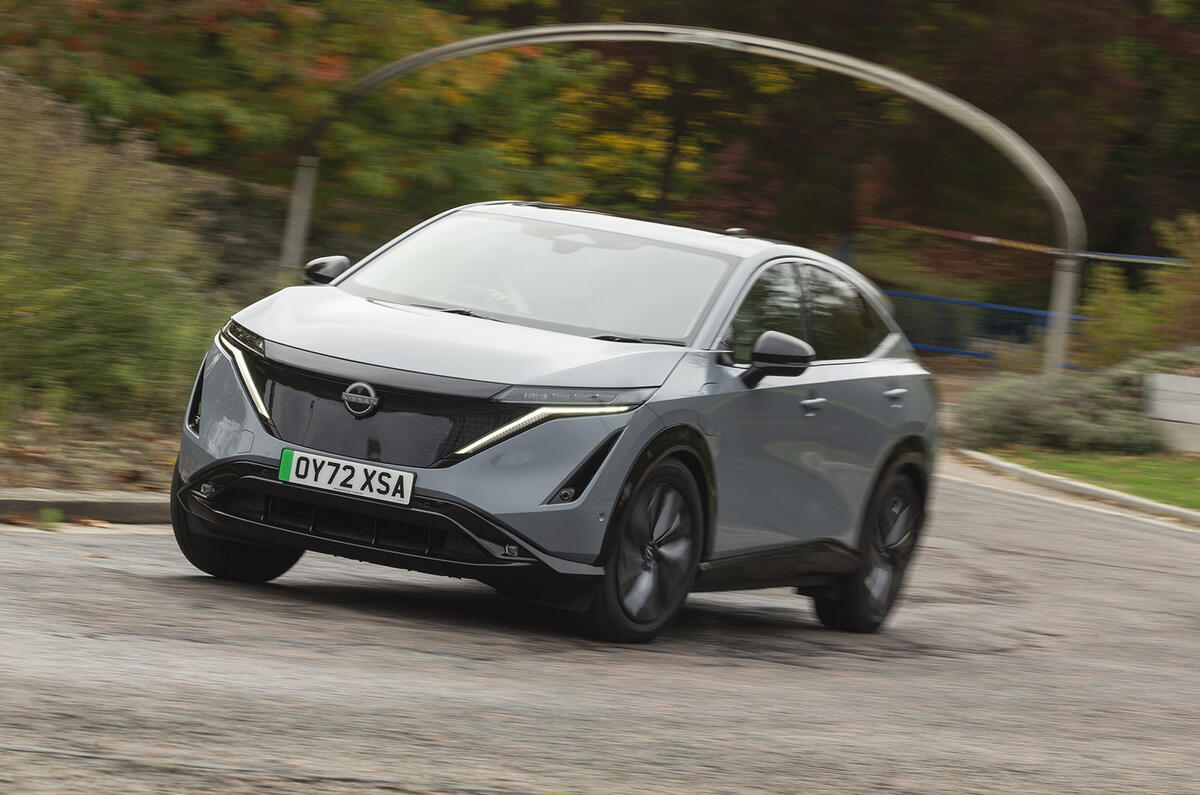Nissan has called on the UK government to make urgent changes to the zero-emission vehicle (ZEV) mandate, warning that failing to do so risks "undermining the business case" for future investment.
Representatives from the Japanese firm and a number of other manufacturers met with transport secretary Louise Haigh and business secretary Jonathan Reynolds today (Wednesday 20 November) to discuss the electric vehicle transition, including the ZEV mandate. Officials from BMW, Ford, Stellantis, Tesla, Toyota and Volkswagen also took part in the talks, along with representatives from the Society of Motor Manufacturers and Traders (SMMT), charging industry body ChargeUK and the British Vehicle Leasing and Rental Association.
In a statement after the meeting, the government confirmed that it would retain the planned 2030 date for the phase-out of purely combustion-engined vehicles – although certain hybrids will be allowed until 2035 – but did not address manufacturers’ concerns about the ZEV mandate, leaving open the possibility for future amendments.
The ZEV mandate requires manufacturers to sell an increasing percentage of zero-emission cars each year, with stiff penalties for those that fail to achieve their targets. While there are a number of exemptions and the ability to pool or trade credits, in its simplest form firms this year must ensure that 22% of their new car sales are zero-emission. That rises to 26% next year and ramps up further to 80% by 2030.
In a statement, Nissan cited SMMT data suggesting EV sales will only reach 18.5% of the total market this year due to the slowdown in consumer demand for EVs, potentially leaving manufacturers in line for stiff penalties.
Calling the targets “outdated”, Nissan said that the ZEV mandate could result in car manufacturers being fined because of slowing consumer demand. One option for firms would be to purchase credits from EV-only brands, but Nissan – which has a major plant in Sunderland – noted that none of those brands currently manufacture in the UK, “meaning the UK automotive industry will effectively be subsidising EV sectors in other countries, at the expense of investment in Britain”.
Nissan said it remains committed to a fully electric future, and is currently gearing up to build three electric models in Sunderland. But it wants the government to address the ZEV mandate by increasing the flexibility to ‘borrow’ credits from future years, and a two-year monitoring period for 2024 and 2025 in which no fines are levied.
“Nissan has consistently supported the aims of the UK’s ZEV mandate and have been working with governments and partners towards a fully electric future since the first Nissan Leaf arrived in 2010,” said Nissan’s European chief, Guillaume Cartier.











Join the debate
Add your comment
Nissan have been too slow to electrify and now they are paying the price. They should have capitalised on the early succcess of the Leaf instead of getting sidetracked by mass-market boredom-boxes like the Qashqai and the Juke. The only thing that's out of date about the ZEV mandate is Nissan's strategy. Why should we, the public, put up with exhaust pollution just because Nissan have been too slow to reduce it?
Over to Sir Flip Flop.